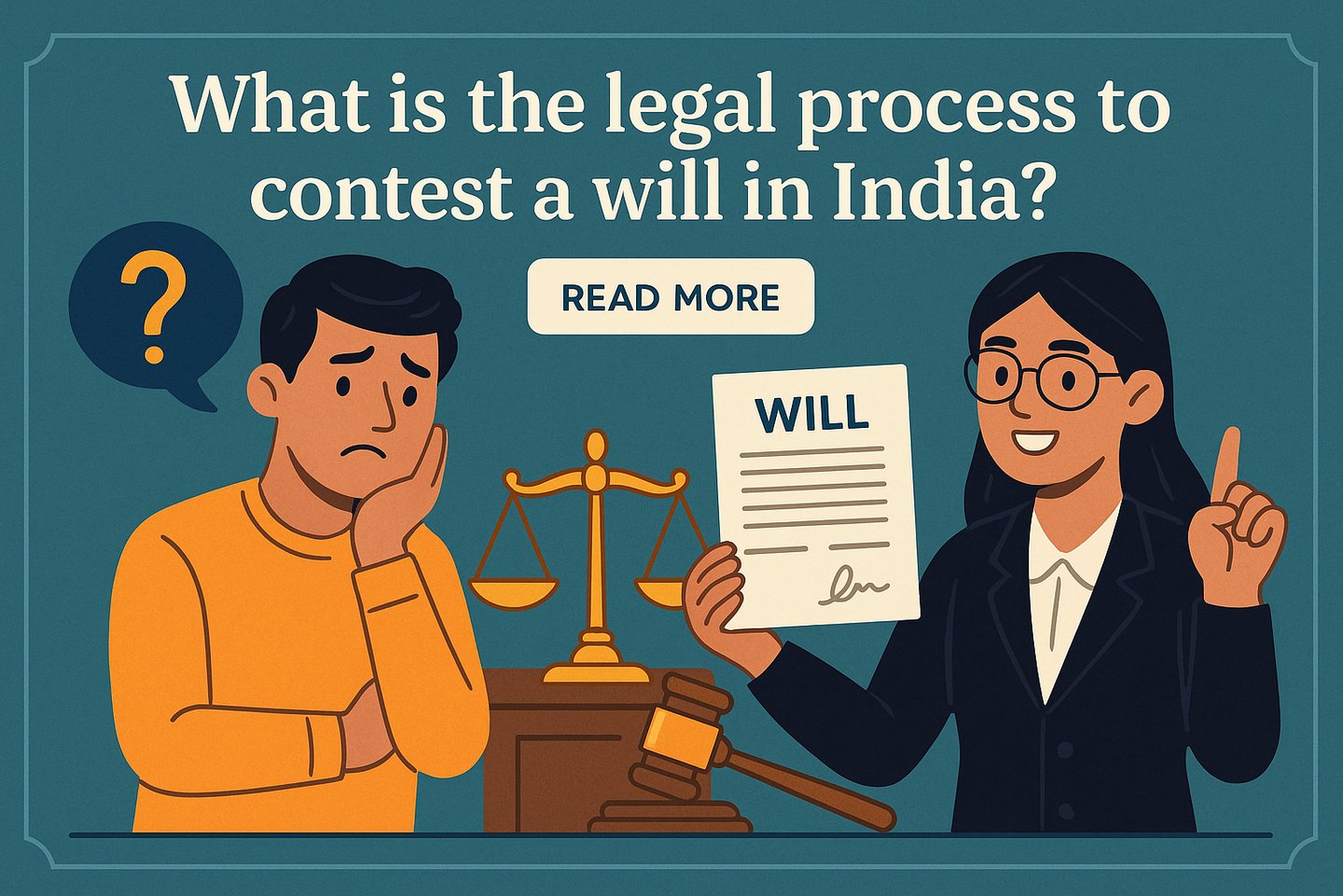What is the legal process to contest a will in India?
This article outlines the legal grounds and process for contesting a will, including issues of validity, forgery, and execution.
FAMILY LAW
Kashish kapoor
7/23/20253 min read


A will is a legal declaration through which a person lays down the manner in which his property shall be distributed after his demise. A person creating the will is called the ‘testator.’ The execution of the will is carried out after the death of the testator. The process of execution is operated by a person called the ‘executor.’ Wills are regulated by the Indian Succession Act, 1925. The Act governs the valid grounds and legal steps for challenging the will.
Grounds for contesting a Will
There are various grounds on which a will may be challenged; some of them have been listed below. This list is not exhaustive, as the grounds may differ from case to case.
i. Absence of Testamentary Capacity: Section 59 of the Indian Succession Act, 1925 (hereinafter referred to as ‘ISA’) provides that the testator shall have been a major and a person of sound mind when he created the will. A will can be contested if the testator did not possess these traits at the time of the creation of the will.
ii. Fraud, coercion, or undue influence: Wherein the will has been made under undue influence, coercion, or fraud, such will be void as per Section 61 of the ISA.
iii. Inappropriate Execution: A will shall be made by Section 63 of the ISA, i.e., signed by the testator and two attesting witnesses as prescribed. If the same is absent, a will can be challenged on the grounds of improper execution.
iv. Forgery: If it can be proven that the will or testator’s signature is forged, the will would be declared invalid. The burden of proving the forgery lies on the person challenging the will.
v. Perpetual Transfer of Assets: If the contents of the will are such that the property is being transferred for a prolonged and uncertain period, the will can be challenged based on Section 114 of the ISA.
vi. Ambiguous Will: A will is void if it is vague, ambiguous, and unclear. For instance, if the testator’s intention cannot be derived from the will, or the will is open to multiple interpretations.
vii. Suspicious Circumstances: If there are unusual circumstances surrounding the will, such as contradictory statements or implausible dates and places in the will.
Legal Process to contest a will
A will can be challenged by a person who has his interests involved in the will. Thus, beneficiaries, legal heirs, etc. The burden of proving the invalidity of the will lies on the person challenging the will. Various legal steps shall be followed to contest a will:
A. Identification of grounds to challenge the will: The foremost step involves finding the grounds on which the will can be challenged in the court of law. In case there are no valid grounds of contest, all the legal efforts may be in vain.
B. Filing of Caveat: A caveat is a notice filed in the court to make sure that the person filing the caveat (caveator) is to be informed of the actions being taken concerning the probate. Although filing a caveat is optional, it is highly recommended, as it ensures that the caveator is informed if the executor of the will (or anyone else) applies for probate of the will. This allows the caveator to put forth their objections.
C. Initiation of Suit: A will shall be contested by initiating a civil suit in the court that has the competent jurisdiction concerning the case. The jurisdiction of the court depends upon the location of the property in dispute, the pecuniary value of the property, etc. The petition shall be accompanied by a copy of the contested will and relevant documents, such as medical reports, legal heirship documents, etc. The grounds on which the will is being challenged shall be clearly stated.
D. Arguments and Evidence: Depending upon the grounds of challenge of the will, the arguments and evidence shall be presented before the court. For instance, medical reports can be used to prove testamentary incapacity of the testator at the time of creation of the will in dispute, and statements of the attestors can be used to prove non-compliance and invalidity of the will.
E. Judgment: If the plaintiff is successful in proving the invalidity of the will, the court would declare the will invalid, and asset distribution would be carried out according to the intestate laws or an earlier valid will, as the case may be. However, if the judgment of the court provides that the will in question is valid, the distribution shall be carried out according to the will.
In conclusion, contesting a will in India is a well-defined process that requires identifying legally valid grounds and following procedural safeguards established under the Indian Succession Act. Whether a will is challenged based on improper execution, forgery, or undue influence, the burden rests on the contesting party to furnish compelling evidence. Ultimately, the legal system offers remedies to ensure that the testator’s true intentions are upheld and that justice is served in cases of genuine grievance.
